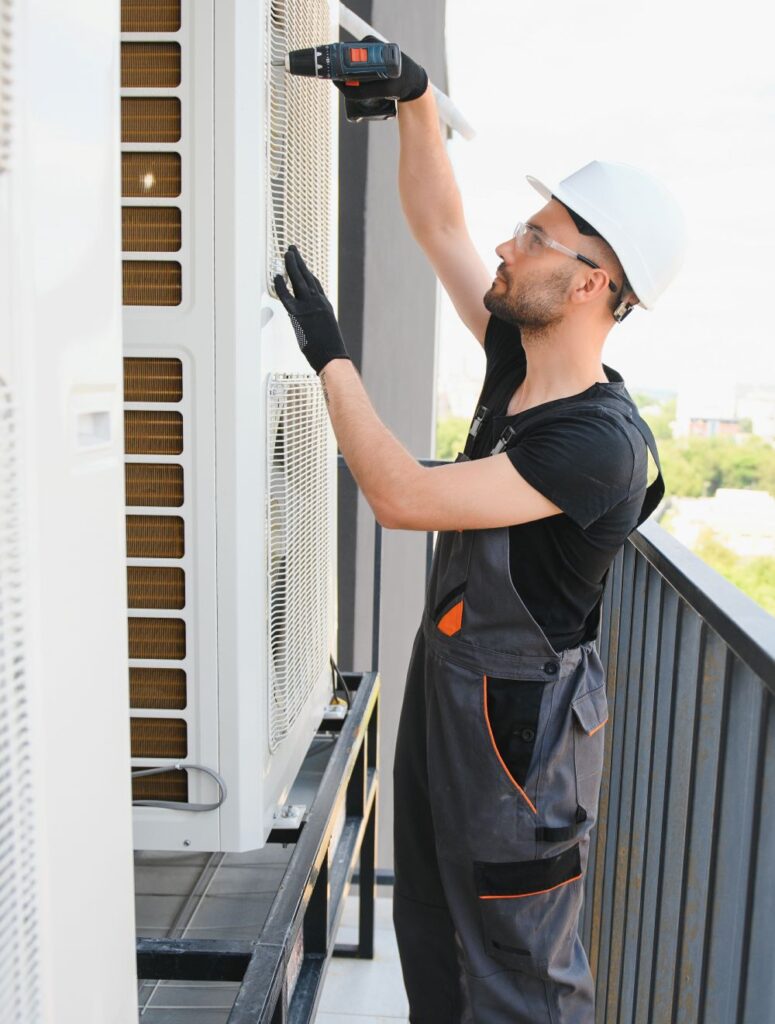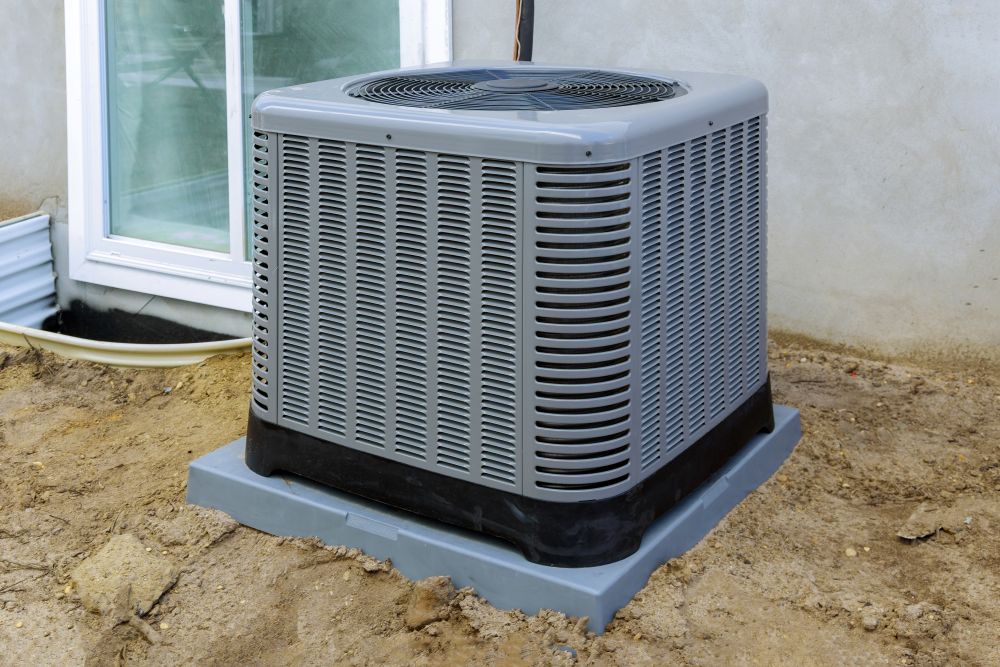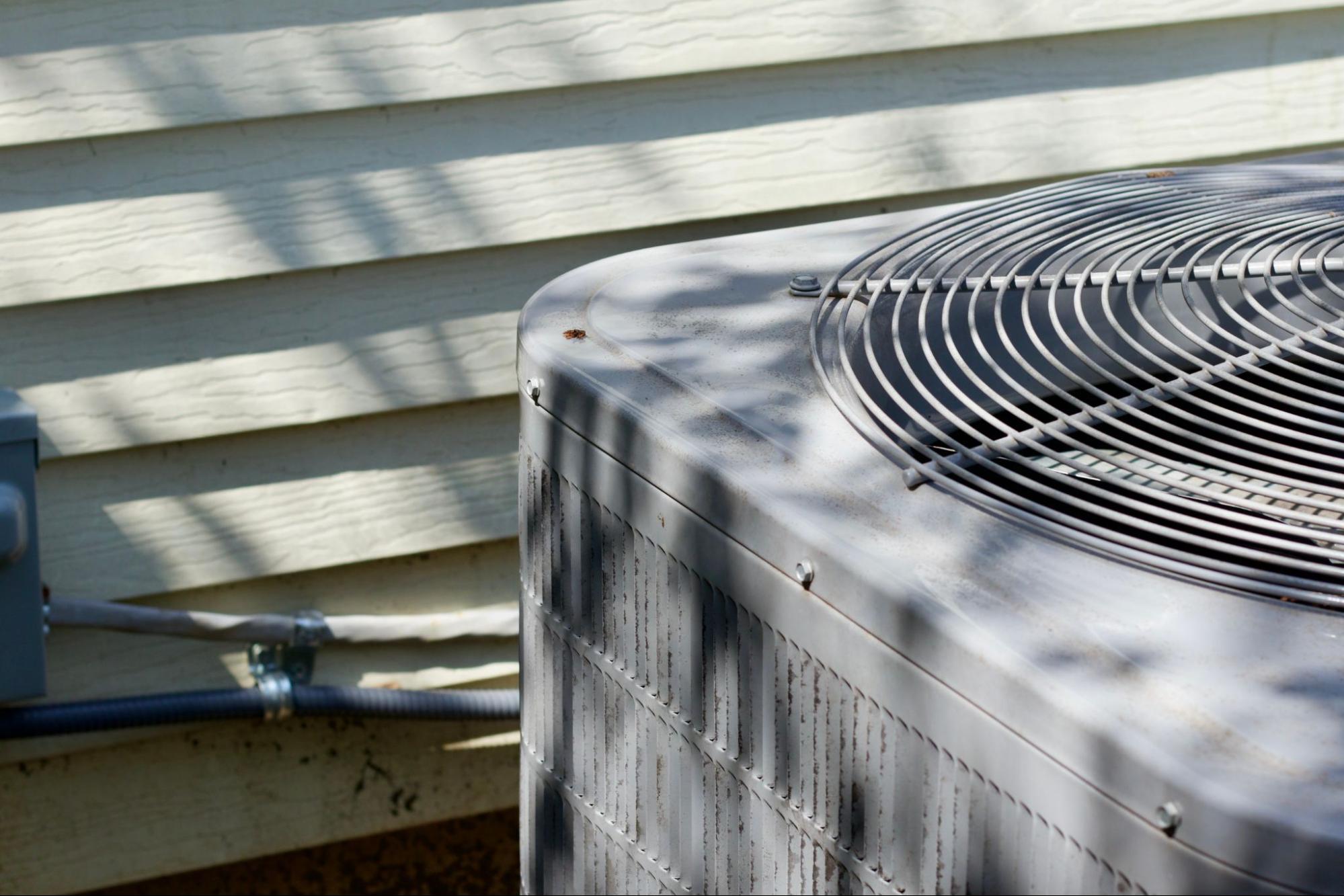We all love that feeling when the AC kicks on during a hot St. Clair County summer. But what happens when your system isn’t just cooling the air—it’s circulating dust, mold, or mystery smells along with it? Spoiler: you’re breathing it all in. And that’s why timely AC repairs are about more than comfort—they’re key to protecting your indoor air quality and overall wellness.
At S&P Heating, we’ve seen what happens when AC systems go too long without service. From clogged filters and moldy ducts to mysterious allergy spikes, your air quality takes a hit fast when your unit isn’t performing at its best. So if you’ve been putting off that repair appointment, this one’s for you.
Let’s break down how AC system performance ties directly to the air you breathe—and what you can do to make sure it’s clean, healthy, and circulation-friendly all year long.
The Air Quality–HVAC Connection: Why It’s a Big Deal
You might not think about your AC system as a health tool, but it plays a significant role in your home’s air cleanliness. Every time it cycles on, it moves air through a system of filters, coils, and ducts—picking up dust, dander, and even bacteria along the way.
When your system is running well, those contaminants are filtered and expelled. But when it’s struggling or overdue for repairs, the entire cycle is compromised. Suddenly you’re dealing with:
- Stale air symptoms
- Aggravated asthma or allergy issues
- Musty or dirty smells
- Humidity imbalances
That’s why keeping your AC in top shape is one of the most effective HVAC maintenance tips for better indoor air.
Poor AC System Performance = Poor Air Quality
When your system is lagging, so is your airflow. And that creates the perfect storm for unhealthy indoor air. Let’s look at some common AC issues and how they directly affect the quality of the air inside your home.
1. Clogged Filters
When your filters are full of dust and debris, they can’t trap airborne allergens like pollen, mold spores, or pet dander. That gunk gets recirculated—over and over again.
2. Dirty Condenser Coils
Neglecting AC repairs can lead to dirty condenser coils, which means your system has to work harder to cool the air. That inefficiency results in longer run times, over-humid air, and more chances for pollutants to spread.
3. Mold in Air Ducts
Yes, it’s real. Moisture buildup from poor drainage or ventilation issues can create the perfect home for mold in air ducts—especially during St. Clair County’s humid months. Once it’s in the ducts, it’s airborne. And you’re inhaling it.
4. Ventilation Problems
If your AC isn’t pushing air effectively or your returns are clogged, you get weak airflow and uneven distribution. That means some rooms are stale and stuffy while others are overly dry. Neither is ideal.
Why It Matters for Respiratory Health in St. Clair County
Let’s talk health. The link between respiratory health and HVAC systems is more than anecdotal—it’s science. Dirty indoor air can aggravate:
- Asthma
- Seasonal allergies
- Sinus infections
- Chronic bronchitis
- Even fatigue and brain fog
And if you’ve got young kids, elderly family members, or anyone immunocompromised at home? Clean air becomes even more critical.
AC repairs ensure your system is running efficiently, filtering properly, and not harboring unwanted guests (like bacteria or mold). It’s a minor fix with big health payoffs.
The Power of Duct Cleaning in St. Clair County
We can’t talk about indoor air quality without mentioning duct cleaning. If your ducts haven’t been cleaned in the last 5+ years—or ever—there’s a good chance they’re lined with dust, pet hair, and maybe even pests.
Benefits of duct cleaning:
- Removes dust buildup in vents
- Clears out mildew and bacteria
- Improves airflow
- Reduces odors
- Boosts HVAC efficiency
When paired with regular AC repairs and maintenance, it creates a clean, high-performing system that supports your health and comfort.
HVAC Humidity Control = Cleaner, Safer Air
Humidity in St. Clair County can swing like crazy—especially in shoulder seasons. And when your system isn’t running efficiently, humidity regulation goes out the window.
Too much humidity? You’re inviting:
- Mold growth
- Dust mites
- That sticky, swampy feeling
Too little humidity? You risk:
- Dry sinuses
- Cracked skin
- Increased spread of airborne viruses
Smart repairs and routine checks help ensure your system is dehumidifying and circulating properly. If not, consider air purification upgrades or adding a whole-house dehumidifier to your HVAC setup.
Common Signs Your AC Is Hurting Your Indoor Air
Still wondering if your unit might be doing more harm than good? Watch for these red flags:
- Your home smells musty or “old” when the AC runs
- Allergy or asthma symptoms spike indoors
- There’s visible dust around vents and registers
- You hear unusual noises or feel uneven airflow
- Some rooms feel stuffy, humid, or overly dry
These are your system’s way of telling you it’s time for a check-up.
Easy HVAC Maintenance Tips for Better Air Quality
You don’t need to be an HVAC tech to improve your air quality. A few simple steps go a long way:
- Change filters every 1–3 months (more if you have pets)
- Keep return vents and air registers free of dust
- Vacuum and dust regularly (especially around vents)
- Schedule seasonal HVAC tune-ups
- Invest in duct cleaning in St. Clair County every 5–7 years
- Add air purifiers or UV lights if you’re prone to allergies
Prevention is the name of the game—and it’s way cheaper than constant doctor visits or emergency AC service calls.
Why Professional Repairs Beat DIY Every Time
It might be tempting to watch a YouTube video and tighten a few bolts on your unit. But here’s the truth: modern AC systems are complex. Attempting DIY fixes without experience can:
- Void your warranty
- Worsen airflow problems
- Lead to refrigerant leaks
- Mask serious ventilation issues
A certified tech can diagnose and fix problems while keeping your system compliant, efficient, and safe.
📞 Keep Your AC Healthy—And Your Air Even Healthier

Your air conditioner doesn’t just cool your home—it protects your lungs, your comfort, and your family’s well-being. So if it’s been a while since your last service, or you’ve noticed strange smells or symptoms, it might be time for an AC repair.
At S&P Heating, we take air quality seriously. Our licensed techs don’t just fix cooling problems—we help you breathe easier. From duct inspections to filter upgrades and full-system tune-ups, we’ve got your back (and your lungs).
Call today to schedule your next service and give your air a clean start.
❓ FAQ: Deeper Air Quality Questions, Answered
How often should you schedule indoor air quality testing?
For most homes, once every 2–3 years is sufficient—unless you notice signs like chronic coughing, dust buildup, or musty smells. Homes with pets, smokers, or allergy-prone individuals may benefit from annual testing. It’s also a smart move after any major HVAC repair or duct cleaning.
Do portable air purifiers actually help with HVAC issues?
Yes and no. Portable purifiers can reduce particulates in individual rooms, but they don’t solve underlying HVAC problems like mold in ducts or poor filtration. Think of them as a support tool—not a replacement—for AC system performance and proper maintenance.
Can indoor plants help improve air quality if the AC needs repair?
Indoor plants can help reduce some VOCs and carbon dioxide, but they don’t filter allergens, pet dander, or mold spores. If your AC is underperforming, fixing the root issue is always more effective than relying on natural solutions alone.
🔗 Curious About Other Common HVAC Pitfalls?
🧰 Check Out Our Full Guide: “Top Mistakes St. Clair County Homeowners Make When Hiring an HVAC Contractor (And How to Avoid Them)“
Before you hire your next HVAC pro, make sure you’re asking the right questions. In our next article, we’ll walk you through the biggest red flags to avoid—and how to choose a contractor that won’t leave you in the dust.
Stay tuned!



